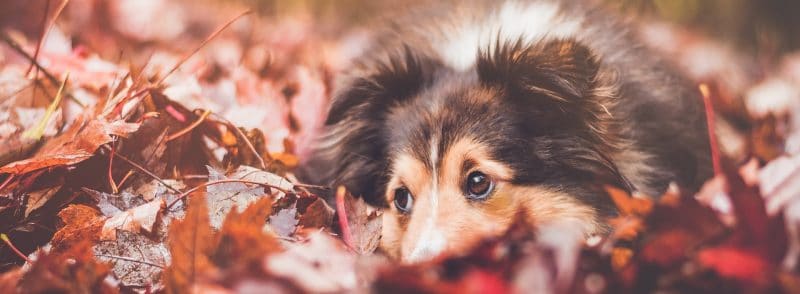Autumn Tips 2021
This year has been quite wet after a very dry December and January. Then we had good rains in February and the start to March putting us well ahead of the yearly average. Climate Change does seem to be a reality and the bushfires Western Australia endured are proof of that with thankfully nothing on the Eastern seaboard of note this year thus far. We have experienced a hot Summer here in the West, with Autumn now upon us, but we all know how the sting in the tail can occur in late March. As regards our pets though, Autumn embraces several festive seasons, the tail end of Christmas and then New Year, Australia Day, Valentines Day and finally Easter! A plethora of occasions when your pet can over indulge if left to its own devices, and in truth they can often be overlooked in the mayhem! So, what does all this mean for our pets?
A season to be aware of all the nasties and believe me there are many.
- The festive season overload is a real curse and chocolate can run from Christmas right through to Easter! Caffeine and theobromine are the toxic components with dark chocolate the worst. Vomiting, diarrhoea, restlessness (just like human kids!) can occur and lead to seizures and death in dogs. If you must give the family dog a treat give carob instead but better still a healthy treat made for pets! Also beware of sweeteners as xylitol can be very toxic in our pets so beware of human toothpaste, many human snacks and sugar alternatives across the board.
- Also be aware of tooth picks in savory food, onions in hamburgers and at BBQ’s, but fat associated with ham and turkey and indeed any meat can be hazardous to pets. Very old school but how many times have you heard older family members say “save the off cuts and fat for the dog!”
- The blurring of the seasons in Autumn often catches us off guard in that it can still be warm on the one hand and we can forget issues such as heat stroke, and on the other it can be cooler and things like deworming, flea control and heartworm can be neglected or forgotten, which is never the case in Perth with its moderate climate all year around.
- So, flea control, heartworm awareness and even flies can be of concern and neglected. Any temperature over 25 degrees C is too hot to leave the pets (or most certainly children) in a locked car even for 5 minutes so don’t be caught off guard.
- Flies can be a problem with wet coats, smelly ears, and open wounds such as grass seed abscesses. Fly strike is a not uncommon problem in domestic pets. If in doubt check it out with your local veterinarian.
- Hot pavements (try walking from the beach yourself bare footed!), and there is a plethora of really good dog boots for animals that are working animals or subject to grass seeds in rural and unkempt areas. Long haired dogs particularly, are at risk when they are on vacation in the country so plan for this.
- Water availability (a shaded area and with ice blocks) is essential for hydration all year round and of course access to a fan or an air conditioner is very important.
- Snail bait poisoning is on the agenda whenever the rain brings out the snails and hence the snail bait. Don’t overuse this product and try to keep it away from the prying eyes of our pets by using ornamental snail traps, wide necked jars buried in the garden and conduit pegged to the ground. The snails are attracted to it just like our pets! On the subject of herbicides and pesticides be sure to use pet safe ecofriendly products at all time for the sake of our frogs, birds and reptiles.
- Routine procedures such as annual health checks, vaccination boosters and the like are always important but more so when pets go to boarding establishments during the breaks so keep these current.
- On the other side of the coin ailments like arthritis creep in at this time of the year so ensure you cater for the older pets by keeping them off the ground, in sheltered areas (if not inside) particularly at night, South of Perth and inland when the nights are cooler. Nutraceuticals such as 4 Cyte and the new Epitalis forte are worth using to ward off the pain of arthritis as are injections of cartrophen (a joint conditioner) and even non steroidal anti-inflammatories in advanced cases.
- On the topic of the garden ensure you plant varieties that enhance the presence of our native species of birds, frogs and reptiles. Please stay away from Lillies, Sago palms, Oleanders, Amaryllis, Kalanchoe, Yew, Wandering Jew and English Ivy just to name a few toxic species harming our dogs and cats.
- When walking your best friend and on the way to the park in the dwindling light that Autumn brings (and doesn’t it creep up on us quickly!), be aware of cars and ensure your dog has been well trained off lead so he/she answers the recall cues so important when training your dog. Good doggy manners and caution should be encouraged crossing roads and so on. A bright collar, even with a light attached or fluoro strips alerts drivers of their presence. A full complement of puppy school and dog obedience classes is so important to maximise your enjoyment of each other but also so essential with the current Council crack-down on unruly public behaviour under the new Dog Act. This includes territorial behaviour of other dogs at the park, particularly avoiding fights over toys and balls all of which can end up in a fight with their owners as well!
- The beach can be a hazard as well in Autumn with fish leads left by careless anglers full of hooks, blowfish, jelly fish and other ocean debris
- Exercising your dog creates another layer of danger when owners continue to use squash balls, sticks (the native variety are very troublesome as they splinter easily) and the like instead of tennis balls and frizzbies.
- Particularly be aware when you throw the ball using a ball thrower. Dogs like staffies are not built to twist and turn in the air as much as they try! My own dog suffered a potentially serious back injury at the beginning of Summer two years ago so please take care. Remember run the ball along the ground for most dogs. Leave the athletic jumps in the air to Collies and Kelpies!
- Also when walking avoid patches of sand that the neighbourhood cats use as a toilet as “cat truffles” (cat poo) seems to be a canine delicacy and many a bout of gastro is caused by this activity, often recurrent, as dogs (my dog!) continually go back to the same place on each walk and some people claim they only have a short term memory!
- Finally, remember the 10 commandments:
- Feed an adequate balanced diet, preferably one of the premium diets such as our locally produced Delicate Care and ease off the quantity as Winter approaches, the sedentary season! Also recently we have been reminded that raw chicken is a haven for bacteria so all that stuff about raw chicken necks being good for their teeth etc is not worth the risk
- Supply clean, cool water at all times. Preferably in the shade and several bowls…add iceblocks if it is hot!
- Provide a cosy, dry sleeping area, out of the wind and off the ground (preferably inside!?)
- Provide your best friend with regular exercise and allow he/she regular family contact…include them in all your activities wherever possible…they are part of the family so don’t exclude them
- Protect their health at all times with a regular wellness program including vaccination, deworming, heartworm, flea and tick control
- Register both dogs and cats with the local Council and ensure the tag, and owner’s details are easily identifiable and legible. Microchipping is now compulsory and a no brainer, and recently a new system of attaching the animal’s medical history to the microchip has expanded its value!
- Keep your dog confined on the property at all times, and cats should always be kept in at night
- Consider the neighbours and ensure your dog is well trained (proper socialisation at puppy class and obedience classes is essential), doesn’t bark in your absence and is polite to everyone on walks
- All domestic dogs and cats should be neutered if not used for breeding. It does them no harm and in fact helps eliminate mammary cancer in bitches and prostate disease in the males…another no brainer
- Consider their welfare when planning a holiday and book them in early to local boarding kennels or better still organise a live-in minder!
- And definitely finally(!)…always have in the back of your mind that an animal’s behavioural health and welfare must be protected in all phases of it life by adhering to the Five Freedoms:
- Freedom from hunger and thirst
- Freedom from discomfort
- Freedom from pain, injury and disease
- Freedom to express its normal behaviour
- Freedom from fear and distress
- And of course there is Covid still loitering but hopefully the vaccine roll out will herald the end of lockdowns though as I write this McGowan seems to have other ideas but I think he will find that very unpopular!
Tony Vigano
PS: We have a new tick born threat now in the top end of Australia. Not thought to be a threat in the Southern areas as yet is caused by a bacterium called Ehrlichia canis.
Known as Ehrlichiosis (and which causes a disease called Canine Monocytic Ehrlichiosis), it is a tick born disease.
Wherever the brown dog tick is found, Ehrlichia canis will eventually follow and long-acting, effective tick prevention is required to prevent this dreadful disease in dogs.
The disease is new to Australia but now it is in the native tick population eradication is considered impossible. All effective tick preventatives will reduce the incidence of this disease at a community level but fast acting tick prevention is the best way to prevent the disease in dogs once it arrives in your local area. We will advise you as soon as it has been recorded in areas other than the top end.
(Advantix squeeze on flea and tick prevention and the Seresto collar are thought to be the best preventatives to use if you are travelling North).
Watch this space.



